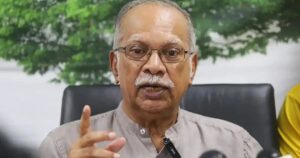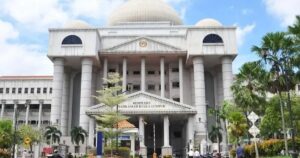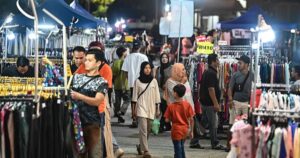
Analysts have poured cold water on Jeffrey Kitingan’s planned Gerakan Sabah Baharu pact, with one pundit predicting the new state-centric alliance will have little meaningful impact.
James Chin of the University of Tasmania said Sabah’s political arena is already saturated, with multiple parties vying for seats in the upcoming state polls, either on their own or as part of already established coalitions.

He said the recent exit of Kitingan’s Parti Solidariti Tanah Airku (STAR) and the Sabah Progressive Party from the ruling Gabungan Rakyat Sabah (GRS) coalition has only served to crowd the state’s political landscape even further.
“Another Sabah nationalistic coalition isn’t going to make much of a difference,” Chin told FMT.
However, he acknowledged that personality, branding, and resources are pivotal to electoral success in Sabah—and that Kitingan’s prominence in the state stands him in good stead.
“He’s a leader who’s well known throughout Sabah. Everyone in Sabah knows him as a strong state nationalist. So that’s one advantage he has.
“People who join (his alliance) can attach themselves to his branding,” he added.

Bilcher Bala of Universiti Malaysia Sabah believes Kitingan’s new alliance may struggle at the state polls, as STAR’s 11th hour exit from caretaker chief minister Hajiji Nor’s GRS gives it little time to woo other parties and build up its election machinery.
He also said the decision of five senior STAR leaders, all assemblymen, to stick with GRS has dealt a heavy blow in terms of retaining grassroots support.
“Without other parties joining, this movement risks becoming a mere platform for STAR, which is weak in terms of influence and competitiveness. In Sabah’s competitive landscape, voters are inclined to choose political brands that are tried and tested over new coalitions.
“Unless a major (party) joins or there’s a massive shift in strategic communications, I expect Gerakan Sabah Baharu to be sidelined and barely win any seat in the state polls,” he said.
Following STAR’s exit from GRS, Kitingan said he was forming a new local alliance of parties for the state election with the goal of forming a state government premised on the “Sabah for Sabahans” vision.
The Tambunan assemblyman said the alliance would not work with West Malaysian parties in Sabah, but would be willing to cooperate with the federal government once the state administration is formed.
Chin did not expect STAR to reach election pacts with any of the other major parties, including Warisan and Parti Kesejahteraan Demokratik Masyarakat (KDM), which are going solo.
He instead expects negotiations to take place when forming the state government after the polls.
“All the real (negotiations) will come after the election, because people need to know how strong you really are — how many seats you’ve won.
“There’s no point talking about forming a coalition if you can’t even win a seat. It’s a waste of time.”






